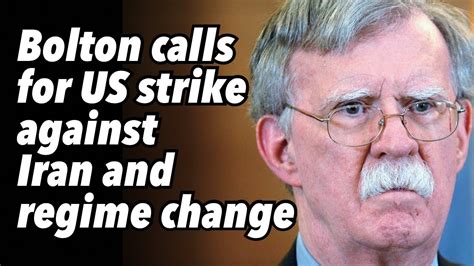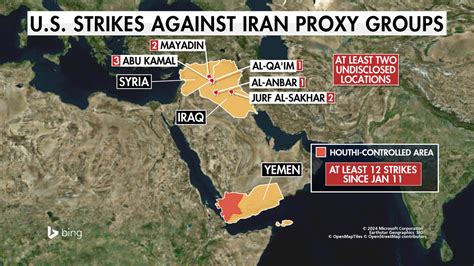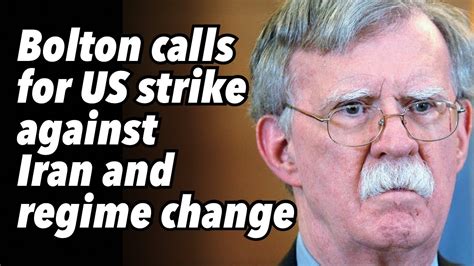
A new graduation rule requiring parents to attend mandatory kindergarten graduation practice sessions at Covington Elementary in Lawton, Oklahoma, or risk their child not participating in the ceremony has sparked widespread criticism and comparisons to a “Black Mirror” episode. The policy, implemented by Principal Renee Mallory, mandates parental attendance at two practice sessions, citing limited space and the need for logistical coordination as justification. Parents who fail to comply will see their children excluded from the graduation ceremony, a decision that has triggered accusations of unfairness and a lack of consideration for families’ diverse circumstances.
The controversial rule surfaced after parents received a notice outlining the attendance requirement. The notice stated explicitly that “Due to limited space, we are requiring parents to attend BOTH practices for graduation.” It further clarified the consequence of non-compliance: “If a parent doesn’t attend BOTH practices, your child WILL NOT participate in the graduation ceremony.”
This uncompromising stance has generated significant backlash from parents who view the requirement as unreasonable and insensitive. Many argue that the mandated attendance imposes unnecessary burdens on working parents, single-parent households, and families with other commitments or logistical challenges. The inflexibility of the policy has left many parents feeling frustrated and unheard.
“It feels like a ‘Black Mirror’ episode,” one parent commented, encapsulating the dystopian sentiment shared by many. This sentiment reflects a broader concern about the increasing intrusion of school policies into parents’ lives and the potential for such policies to disproportionately affect certain families.
The school district has yet to release an official statement addressing the controversy, leaving parents in limbo and further fueling the discontent. The lack of communication has amplified the sense of frustration and has led many to question the rationale behind the stringent attendance requirement. The absence of a clear explanation has made it difficult for parents to understand why their presence at the practice sessions is deemed essential for their child’s participation in the graduation ceremony.
The controversy has also ignited a debate about the purpose and significance of kindergarten graduation ceremonies. While some view them as important milestones that celebrate children’s achievements, others consider them to be unnecessary and overly formal events that place undue pressure on families. The mandatory attendance rule has further intensified this debate, with some arguing that it undermines the spirit of celebration and turns the graduation ceremony into a source of stress and anxiety.
The situation at Covington Elementary highlights the challenges of balancing school policies with the diverse needs and circumstances of families. It also underscores the importance of clear communication, transparency, and flexibility in implementing policies that affect students and their parents. The outcome of this controversy could have broader implications for school policies and parental involvement in education.
Background of the Policy
Principal Renee Mallory implemented the policy reportedly in response to logistical challenges encountered during previous graduation ceremonies. These challenges included overcrowding, disorganized student processions, and difficulties in managing the flow of parents and guests. The aim was to create a more organized and streamlined event, ensuring that all students could participate safely and enjoyably.
The decision to mandate parental attendance was based on the belief that parents’ presence at the practice sessions would help them understand the procedures and expectations of the ceremony. This understanding, in turn, would enable them to support their children and contribute to a smoother and more efficient event. However, the policy failed to account for the diverse circumstances of families and the potential hardships it would impose on those unable to attend the practice sessions.
Parents’ Reactions and Concerns
The parents’ reactions to the new graduation rule have been overwhelmingly negative. Many have expressed their frustration and disappointment on social media and through direct communication with school officials. Their concerns can be broadly categorized into the following areas:
- Logistical Challenges: Many parents work during the day and find it difficult to take time off to attend the practice sessions. Single parents and those with multiple jobs face even greater challenges.
- Lack of Flexibility: The inflexibility of the policy, with no exceptions made for legitimate reasons, has been a major source of concern. Parents argue that the school should be more accommodating to families facing genuine difficulties.
- Unfairness: Some parents feel that the policy unfairly penalizes children for their parents’ inability to attend the practice sessions. They argue that the child’s right to participate in the graduation ceremony should not be contingent on their parents’ attendance.
- Communication Issues: The lack of clear communication from the school district has exacerbated the situation. Parents feel that they have not been given a proper explanation for the policy and have not had an opportunity to voice their concerns.
- The Value of Graduation: Some parents question the value of the kindergarten graduation itself, seeing it as an unnecessary spectacle. Making attendance at practices mandatory exacerbates this feeling.
One parent, speaking anonymously to local media, said, “I work two jobs to provide for my family. Taking time off for these practices would mean losing much-needed income. It’s just not feasible.”
Another parent expressed concern for single parents, stating, “How can a single parent who doesn’t have family nearby to help possibly make both of these practices? It’s incredibly unfair.”
The Covington Elementary PTA has reportedly received numerous complaints from parents and is attempting to mediate between the parents and the school administration. However, as of yet, there has been no indication that the policy will be revised or rescinded.
School District’s Response (or Lack Thereof)
As of the time of the initial reporting, the Lawton Public School District had not issued a formal statement addressing the controversy. This silence has been interpreted by many parents as a lack of concern for their grievances. The absence of communication has fueled speculation and mistrust, making it difficult for parents to understand the district’s position on the matter.
Some parents have attempted to contact district officials directly, but their inquiries have reportedly gone unanswered or have been met with vague responses. This lack of transparency has further eroded parents’ trust in the school district and has intensified their determination to challenge the policy.
Comparison to “Black Mirror”
The comparison to a “Black Mirror” episode reflects a broader societal anxiety about the increasing intrusion of technology and bureaucratic processes into people’s lives. “Black Mirror” is a British anthology television series that explores dark and unsettling themes related to technology and its impact on society. The show often depicts dystopian scenarios in which technology is used to control, manipulate, and oppress individuals.
In this context, the kindergarten graduation rule is seen as an example of bureaucratic overreach that prioritizes efficiency and control over the needs and concerns of families. The inflexibility of the policy and the severity of the consequences for non-compliance are reminiscent of the dehumanizing and oppressive systems depicted in “Black Mirror.”
The comparison also highlights a growing concern about the erosion of individual autonomy and the increasing pressure to conform to standardized norms. Parents feel that the school is dictating their behavior and undermining their ability to make decisions that are in the best interests of their families. This sense of powerlessness has contributed to the widespread outrage and resistance to the policy.
The Debate over Kindergarten Graduation Ceremonies
The controversy has also sparked a broader debate about the purpose and significance of kindergarten graduation ceremonies. Some educators and parents believe that these ceremonies are important milestones that celebrate children’s achievements and mark their transition to elementary school. They argue that the ceremonies provide a sense of accomplishment and pride for both children and their families.
However, others view kindergarten graduation ceremonies as unnecessary and overly formal events that place undue pressure on families. They argue that the ceremonies are often costly and time-consuming and that they do not accurately reflect the diverse experiences and achievements of all children.
The mandatory attendance rule has further intensified this debate, with some arguing that it undermines the spirit of celebration and turns the graduation ceremony into a source of stress and anxiety. They argue that the school should focus on creating a positive and inclusive learning environment for all children, rather than imposing arbitrary requirements that exclude some families.
Potential Legal Implications
While it’s unclear whether this situation will escalate to legal action, legal experts suggest that the school’s policy could potentially face legal challenges based on several grounds:
- Equal Protection: The policy could be challenged on the grounds that it violates the Equal Protection Clause of the Fourteenth Amendment, which prohibits discrimination based on arbitrary or unreasonable classifications. If the policy disproportionately affects certain groups of parents (e.g., working parents, single parents, low-income families), it could be argued that it constitutes unlawful discrimination.
- Due Process: The policy could also be challenged on the grounds that it violates the Due Process Clause of the Fourteenth Amendment, which requires that government action be fair and reasonable. If the policy is deemed to be arbitrary or unreasonable, it could be struck down by a court.
- Parental Rights: Some legal scholars argue that parents have a fundamental right to direct the upbringing and education of their children. A policy that unduly interferes with this right could be subject to legal challenge.
However, it is important to note that legal challenges of this nature are often complex and fact-specific. The outcome of any legal challenge would depend on the specific details of the case and the applicable state and federal laws.
The Role of Social Media
Social media has played a significant role in amplifying the controversy and galvanizing parental opposition to the graduation rule. Parents have used social media platforms to share their concerns, organize protests, and pressure school officials to reconsider the policy.
Social media has also provided a platform for parents to connect with each other and share information and resources. This has helped to create a sense of solidarity and empowerment among parents who feel that their voices are not being heard by the school district.
The use of social media in this context highlights the growing power of online activism and the ability of ordinary citizens to challenge authority and hold institutions accountable.
Possible Solutions and Alternatives
Given the widespread dissatisfaction with the current policy, several alternative solutions could be considered:
- Voluntary Attendance: The school could make attendance at the practice sessions voluntary, rather than mandatory. This would allow parents who are able to attend to do so, while accommodating those who are unable to.
- Flexible Scheduling: The school could offer multiple practice sessions at different times of day to accommodate parents’ diverse schedules. This would make it easier for working parents and single parents to attend.
- Virtual Participation: The school could provide a virtual option for parents who are unable to attend the practice sessions in person. This could involve streaming the sessions online or providing recordings that parents can watch at their convenience.
- Parental Involvement in Planning: The school could involve parents in the planning of the graduation ceremony. This would give parents a greater sense of ownership and would ensure that their concerns are taken into account.
- Re-evaluate the Need for Practices: Perhaps the ceremony could be streamlined to eliminate the need for extensive practice sessions altogether.
Impact on Students
The controversy surrounding the graduation rule is likely to have a negative impact on students, regardless of whether their parents are able to comply with the policy. Children whose parents are unable to attend the practice sessions may feel excluded and disappointed, while those whose parents are able to attend may feel stressed and anxious about the situation.
The controversy could also create a sense of division and resentment among students and their families. Children may become aware of the conflict between parents and school officials, which could undermine their trust in the educational system.
The Future of the Policy
The future of the graduation rule at Covington Elementary remains uncertain. It is possible that the school district will reconsider the policy in response to parental pressure and negative publicity. However, it is also possible that the district will stand by the policy, arguing that it is necessary to ensure a smooth and successful graduation ceremony.
The outcome of this controversy will likely have broader implications for school policies and parental involvement in education. It will serve as a test case for the balance between school authority and parental rights, and it will highlight the importance of clear communication, transparency, and flexibility in implementing policies that affect students and their families.
FAQ
1. What is the new graduation rule at Covington Elementary?
The new rule mandates that parents attend both kindergarten graduation practice sessions. If a parent doesn’t attend both, their child will not be allowed to participate in the graduation ceremony.
2. Why did the school implement this rule?
Principal Renee Mallory implemented the policy to address logistical challenges encountered during previous graduations, such as overcrowding and disorganized processions. The school believes parental attendance will help them understand the procedures and expectations of the ceremony, leading to a smoother event.
3. What are parents’ main concerns about the rule?
Parents are concerned about logistical challenges, especially for working parents and single-parent households. They cite the lack of flexibility, the perceived unfairness of penalizing children for their parents’ inability to attend, and the lack of clear communication from the school district.
4. Has the school district responded to these concerns?
As of the time of the initial reporting, the Lawton Public School District has not issued a formal statement addressing the controversy, which has fueled parental frustration and speculation.
5. What are some possible alternative solutions to this rule?
Possible solutions include making attendance voluntary, offering flexible scheduling with multiple practice sessions, providing a virtual participation option, involving parents in the planning process, and re-evaluating the necessity of extensive practice sessions.
Update (If Available)
As the story develops, updates will be provided regarding any responses from the Lawton Public School District, changes to the policy, or any legal challenges filed by parents. This is a developing situation, and further information will be added as it becomes available to ensure a comprehensive and up-to-date report.
Conclusion
The kindergarten graduation rule at Covington Elementary has ignited a firestorm of controversy, highlighting the delicate balance between school policies and parental rights. The stringent attendance requirement, perceived as inflexible and insensitive to the diverse needs of families, has sparked widespread outrage and comparisons to dystopian scenarios. While the school’s intentions may have been rooted in logistical concerns, the implementation of the policy has raised fundamental questions about fairness, communication, and the role of parents in their children’s education. As the situation unfolds, it remains to be seen whether the school district will address the concerns of parents and find a more equitable solution that respects the needs of all families. The outcome will undoubtedly have lasting implications for school policies and parental involvement in education, underscoring the importance of transparency, communication, and flexibility in navigating the complex landscape of modern education. The debate over kindergarten graduation ceremonies, amplified by this controversy, further underscores the need for schools to consider the diverse perspectives and priorities of the communities they serve. Whether kindergarten graduation ceremonies are perceived as milestones of achievement or unnecessary spectacles, it is crucial that schools engage in open dialogue with parents to ensure that policies are inclusive, equitable, and supportive of all students and families. This situation serves as a reminder that effective education requires a collaborative partnership between schools and parents, one that values mutual respect, understanding, and a shared commitment to the well-being and success of all children. The Lawton Public School District’s response, or lack thereof, will be crucial in determining the future of this policy and the relationship between the school and its community.









